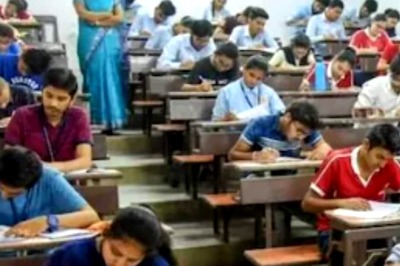
views
Having good command over the local language of any place is not usually a pre-requisite, but it surely is one of the priorities. A working knowledge of the vernacular helps in many ways, be it walking into a store confidently and placing an order or mingling in a group of friends and not feeling left out of place in a gathering.Recognising this need among non-local students, the University of Hyderabad has taken up an initiative to help them converse in Telugu, effectively and fluently. From idioms to the most commonly used expressions, from greetings to numbers, its new series of podcasts called, Spoken Telugu: Your Daily Cup of Telugu, is pure fun and an intuitive way to understand and learn to speak Telugu. And, all that one has to do is invest five minutes and log on to the UoH Podcasts webiste (http://uohpodcasts.in/category/languages/spoken-telugu/).Launched recently, the website has about five episodes that teach how to greet people, how to count numbers in Telugu, their usage in daily life, multiples of numbers in Telugu and many more, with instructions in English. A few podcasts also have a short quiz at the end to test the learner’s skills.Initiated by Prof. Ramakrishna Ramaswamy, Vice-Chancellor (VC), the project is aimed at making it easy for people to converse in Telugu. “We have a number of students who come from all over India. We should create short podcasts that will help them learn the language so that they can interact and transact business here,” he believes.Vasuki Belavadi from the Department of Communication and Dr. Pammi Pavan Kumar from the Department of Telugu have collaborated to work on the podcasts. Explaining more on the podcasts uploaded, Vasuki Belavadi explains, “Any media if created well will definitely catch the listener’s attention. Our main aim is to share knowledge in the public domain. This being a central university, students from across the country come here to study. What we are trying to do is just a small measure to make sure people negotiate their way through the city and help them learn basic conversing skills.”He also says that the department will come up with 100 such podcasts which will help people to learn the language more effectively. “The non-Telugu speaking people relate to it well,” he adds.Local students at the university are also doing their bit to help students from the other parts of the country. One such student, Rajitha Sanaka, a first-year communications student, says, “We recorded about five episodes in one night. All deal with simple one-liners that make speaking Telugu easy. Our VC also mentioned it in his blog, wherein he mentioned that even he had picked up Telugu from it.” She adds, “We also had one non-Telugu speaking student which made it more effective. The pronunciations and the interactive sessions made it more fun and engaging.”Another first-year student, Ashwati Varghese, a non-Telugu, shares her experience on recording the podcasts. “Initially when we started working on this, I had no knowledge about the language. My classmates and I sat together and started working on the scripts. We wanted to make it conversational as it would make it more appealing and will reach out to more people.”As an outsider, she believes that one should start off from the basics. “So, we have about three episodes on numbers. For our next episodes we are planning to go to a shop and record soundbytes from a shopkeeper. We want to keep it dramatic as it is more entertaining. We are also chalking out ways on how to widen this platform.”


















Comments
0 comment